
AULDS COVE: Days after local MPs had to deal with incidents at their constitency offices, and just before the Prime Minister invoked the Emergencies Act, a local convoy met at the Canso Causeway to join others in Halifax.
The organizer of the local convoy that was part of the Nova Scotia Freedom Rally said the purpose was to unify the province and repair divisions. The Halifax event did attract a large police presence, as well as counter protests.
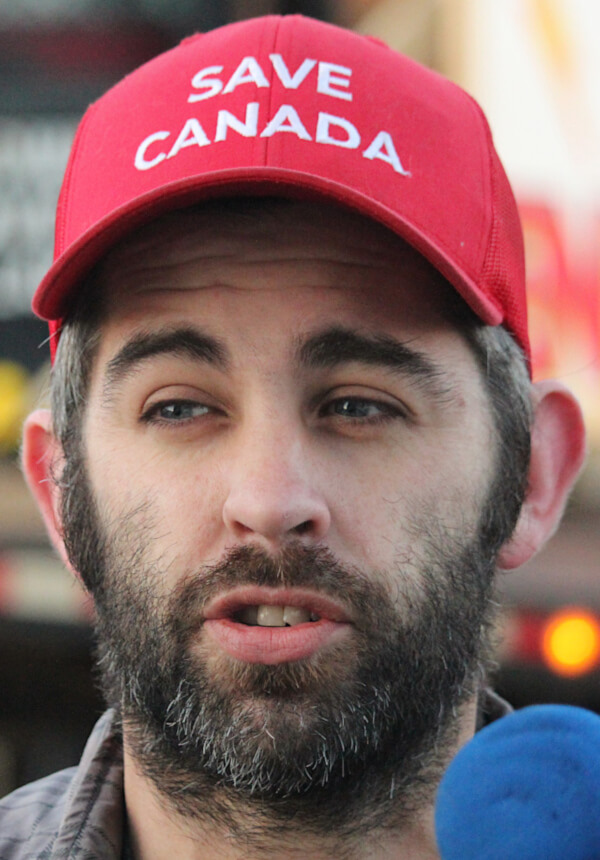
Organizer Ryan McKenna said the purpose behind the Freedom Rally was to unify the province, heal some rifts, and get people to look at one another as true blue Nova Scotians.
Ryan KcKenna, who was representing Nova Scotians for Freedom, said they put the convoy together quickly after a rally in Halifax on the weekend of Feb. 5 and 6 had convoys from Halifax and Windsor. That event also attracted a counter protest.
“So immediately following that, we started trying to put together an event for this Saturday, throughout the country the (Freedom) events have traditionally happened on Saturday, so we wanted to work our way into that schedule,” he said. “We knew we were on a short time frame, so we planned three routes, one from here, one from Yarmouth and one from Kingston, all going into the heart of Halifax to culminate in a rally.”
McKenna advised they wanted to form a convoy out of Cape Breton, but not having organizers on the ground limited them.
“It’s been very optimistic, we’re feeling very positive, we do feel like there is a shift happening in Canada right now, towards an acknowledgment of freedom,” he said. “But also an acknowledgment that there’s been a lot of misleading over the past two years. There’s been a lot of good intentions as well, but we have to acknowledge both successes and failures in the handling of the pandemic.”
McKenna said they see the country coming together, and they wanted Nova Scotia to be part of that unity.
“We all deal with the same struggles. We should be coming together and looking to our elected leaders for answers and accountability from what’s going on,” he said. “The number one thing for today is unity. Start to re-unify and start to end the pain that a lot of people have been experiencing, we think it’s time.”
According a Leger survey of 1,546 Canadians between Feb. 4 and 6, 32 per cent support the Freedom Convoy, while 62 per cent oppose. The same poll found that 65 per cent of Canadians think the Freedom Convoy represents a small minority of selfish Canadians. More can be found at: The Freedom Convoy and Federal Politics – February 8, 2022 – Leger (leger360.com).
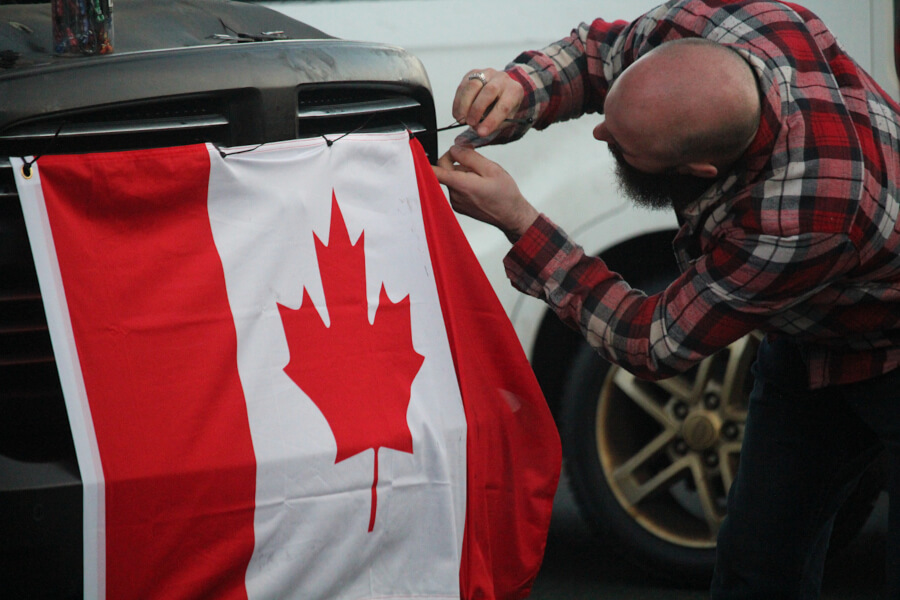
Speaking on the support they’ve been getting from residents across the province, McKenna said it’s been fantastic. The event in Aulds Cove last weekend attracted about 35 people.
“Of course, there are some people who don’t agree with what we’re doing; we understand that, we respect those opinions,” he said. “We think that they have the right to express those opinions, just like we have the right to express ours, and we would never try to silence anyone for that.”
McKenna suggested it was time for the responsible parties, namely government, to create solutions that allow people to carry on with their lives.
“If we’re going to be addressing the issues, we need to stop blaming our friends, our neighbours and our family, and stat looking at the responsible parties,” he said. “We are looking to the long haul, even if the passports and mandates get dropped, we certainly don’t think that’s the end of the fight.”
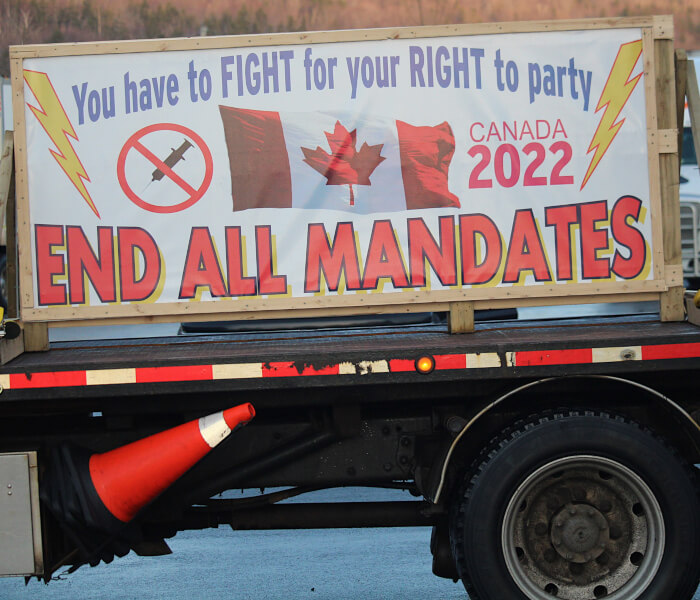
According to data from the province, as of Feb. 13, 2,182,582 doses of COVID-19 vaccine have been administered. Of those, 91.6 per cent of Nova Scotians have received their first dose, and 85.6 per cent have received their second dose, the province stated.
As well, provincial statistics show that 60.2 per cent of Nova Scotians 18 and older have received a booster dose, and 1.9 per cent have scheduled a booster appointment.
McKenna said there is a need for honest dialogue before imposing public health restrictions.
“We really need to hash out the lessons that we learned here,” he said. “We really need to take people to task for their decisions and for them to justify those decisions to the people that they have affected.”
Nova Scotia announced a three-phase re-opening plan on Feb. 9 outlining how restrictions will ease while protecting the health care system and vulnerable populations throughout the province. The plan takes a phased approach based on ongoing epidemiology, hospitalizations, employee absences and COVID-19 activity in long-term care facilities, the government said.
Masks and proof of full vaccination are required throughout Phase 1 and 2, and these restrictions may be in place during Phase 3, according to the province.
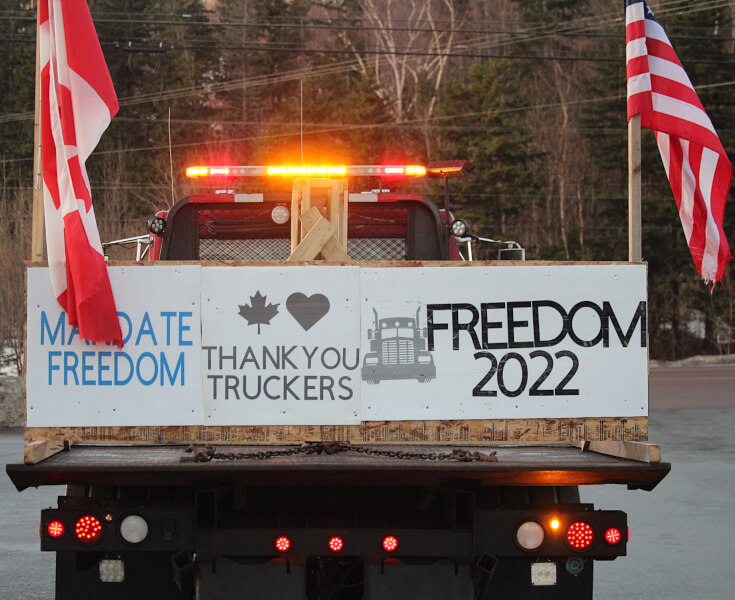
On Feb. 14, Prime Minister Justin Trudeau implemented the Emergencies Act; a law that gives the federal government full authority and extraordinary measures to manage a crisis, however it is limited in scope.
Trudeau spent the morning on a conference call with premiers before holding a rare Monday morning caucus meeting as the convoy protest in the nation’s capital expanded into its third week.
The night before, Trudeau issued a tweet stating the cabinet’s Incident Response Group (IRG) discussed “further actions the government can take to help end the blockades and occupations.”
According to the legislation, which replaced the War Measures Act, a national emergency is outlined as an urgent, temporary and critical situation that seriously endangers the health and safety of Canadians that cannot be effectively dealt with by the provinces or territories, or that seriously threatens the ability of the Government of Canada to preserve the sovereignty, security, and territorial integrity of Canada.
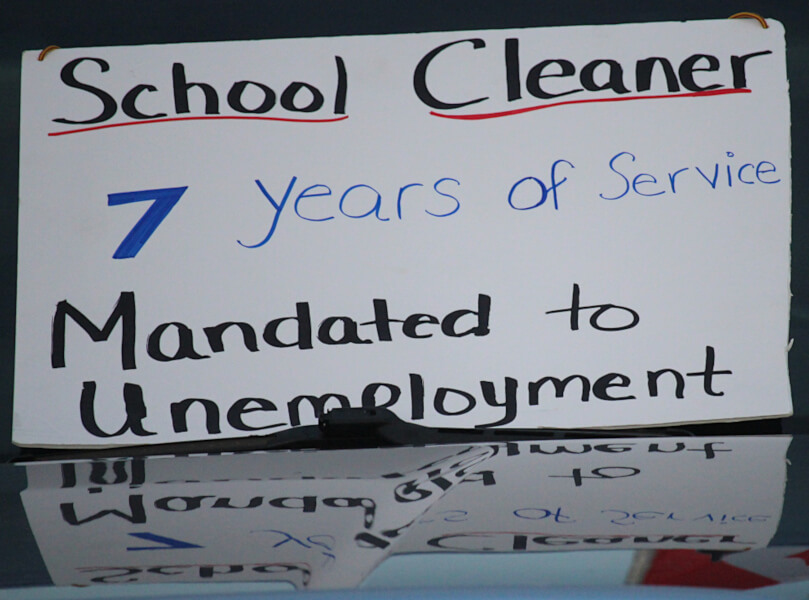
Cape Breton-Canso MP Mike Kelloway’s constituency office was required to contact 911 and had to be evacuated on Feb. 10, after a “suspicious package” arrived in the mail. Offices of three Liberal MPs have been the latest targets, similar packages were also sent to two Conservative MPs.
A suspicious manila envelope was addressed to Kelloway’s constituency office in Dominion, had no return address, and despite having several sheets of paper inside, was not opened out of precaution.
While the Cape Breton Regional Police are investigating the suspicious package Kelloway received, both Andy Fillmore and Darren Fisher, MPs for Halifax and Cole Harbour respectively, issued tweets of their own that suggested their constituency offices received packages containing chemical irritants.
This follows earlier events in the week that saw other Members of Parliament receive similar packages, which led to the Sergeant-at-Arms of the House of Commons to alert all MPs to be on the lookout.
“From a package with an irritant, to border blockades, and the occupation of our nation’s capital, these are not acceptable means of protest,” Kelloway said in the House of Commons on Feb. 14. “Rather a disrespect of Canadian democracy that puts safety in jeopardy… As parliamentarians, these actions will not, and I stress, will not, intimidate us or our staff from doing our jobs.”
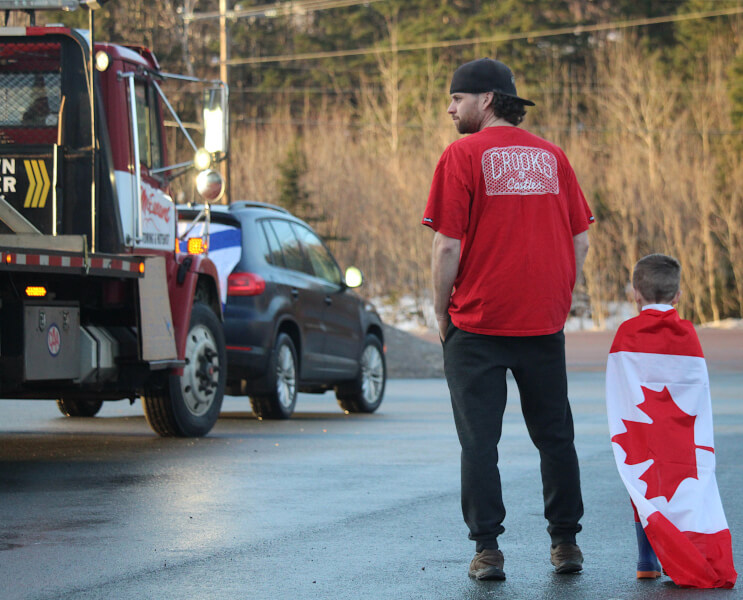
While he didn’t receive a suspicious package in the mail, Central Nova MP Sean Fraser did have to deal with a protest outside his constituency office in New Glasgow
“There was a protest at my constituency office in New Glasgow today,” Fraser posted to social media. “Under normal circumstances, I would welcome it. In fact, in the past we have purchased coffee and donuts for protestors and invited them for conversations to discuss their point of view. Often, we have even found issues of agreement on controversial matters.”
However this was different, as he highlighted a Facebook post from organizers of the event that stated “Remember the Nuremberg Code. I was just following orders will not cut it.”
Providing a brief history of the Nuremberg trials, Fraser explained they were military tribunals held by the Allied Forces in the wake of WWII in order to prosecute Nazi leaders for war crimes and for their perpetuation of the Holocaust, which resulted in the murder of 6 million Jews.
The federal government’s role in vaccine mandates only requires proof of vaccine to work for the federal government and to cross the border without quarantining; with the provinces responsible for their individual mandate, the Central Nova MP said.
“Today’s protest at our office was supposedly about vaccine mandates,” Fraser said on Feb. 10. “Comparing these requirements to the murderous behaviour of Nazis during the Holocaust is extraordinarily inappropriate and deeply offensive.”
Fraser noted his staff has been incredible throughout this pandemic and have helped thousands of community members access important benefits, or receive information about the public health situation.
“I made the decision to have my team work from home this afternoon because they do not deserve to be harassed, disrespected, or put at risk of contracting COVID-19,” Fraser said. “They also deserve to be free from comparisons to Nazis and threats of some form of mob justice being exacted by protestors in the manner of the Nuremberg trials.”
Fraser said many people are frustrated with the impact of COVID-19 on their lives, and as the public health situation evolves and the advice of public health officials changes, so too will the measures put in place to protect communities and the health care system.
“There is room for debate about the use of vaccine mandates where people could reasonably disagree. There is room for reasonable debate about the extent to which restrictions should continue,” Fraser said. “There is no room for debate around whether elected officials should be executed because they support policies which you do not agree with. There is no room for debate about the harassment of staff who work in political offices.”
Disagreement is healthy in a democracy, Fraser added, and it’s important for decision makers to understand and consider different perspectives.
“We must appreciate that governments will, on occasion, implement ideas that some of us do not support, because they were democratically elected by the Canadian public on commitments to do so,” Fraser said. “Let’s be respectful in our disagreements and remember that through all of this, the enemy we face is COVID-19, not each other.”

